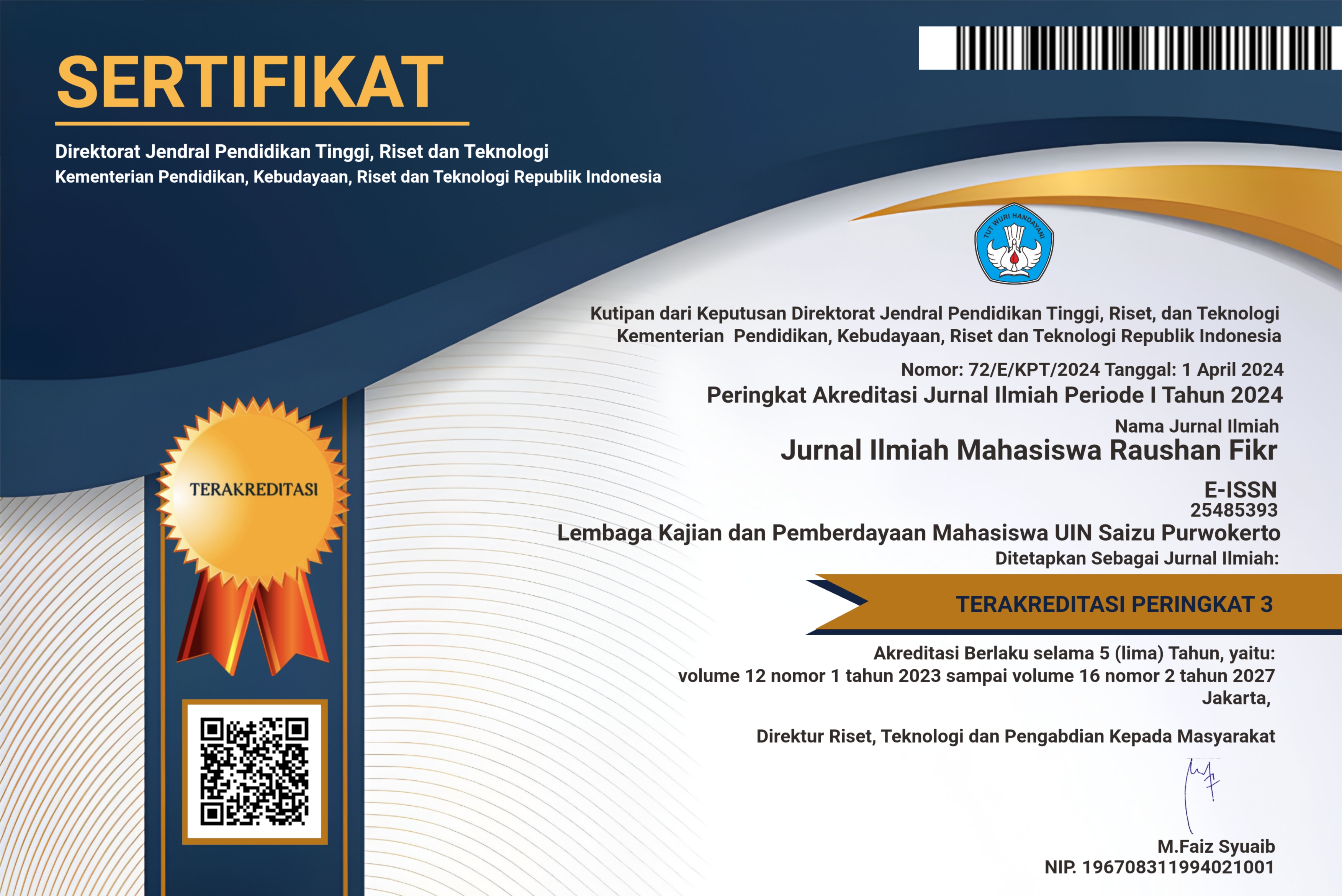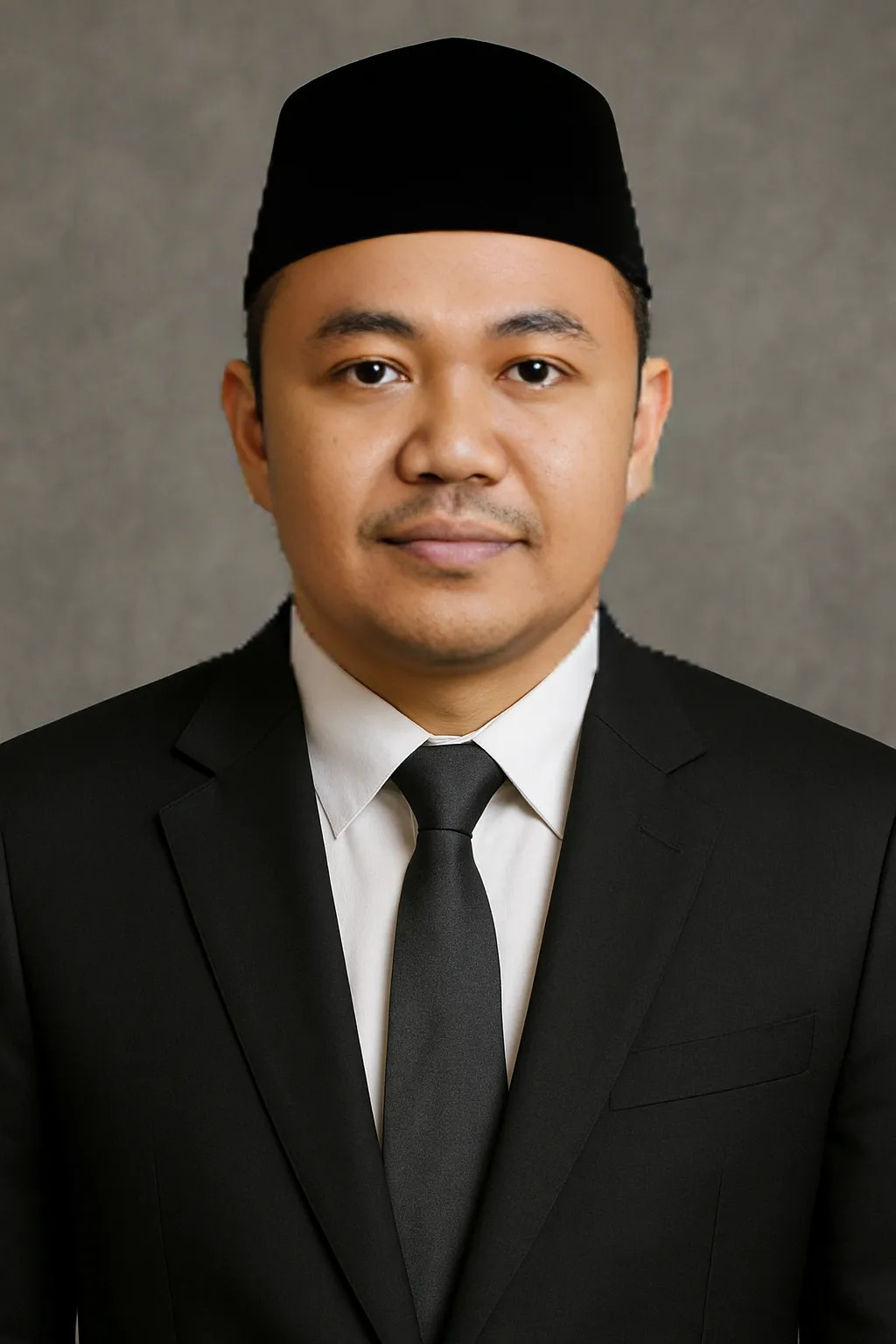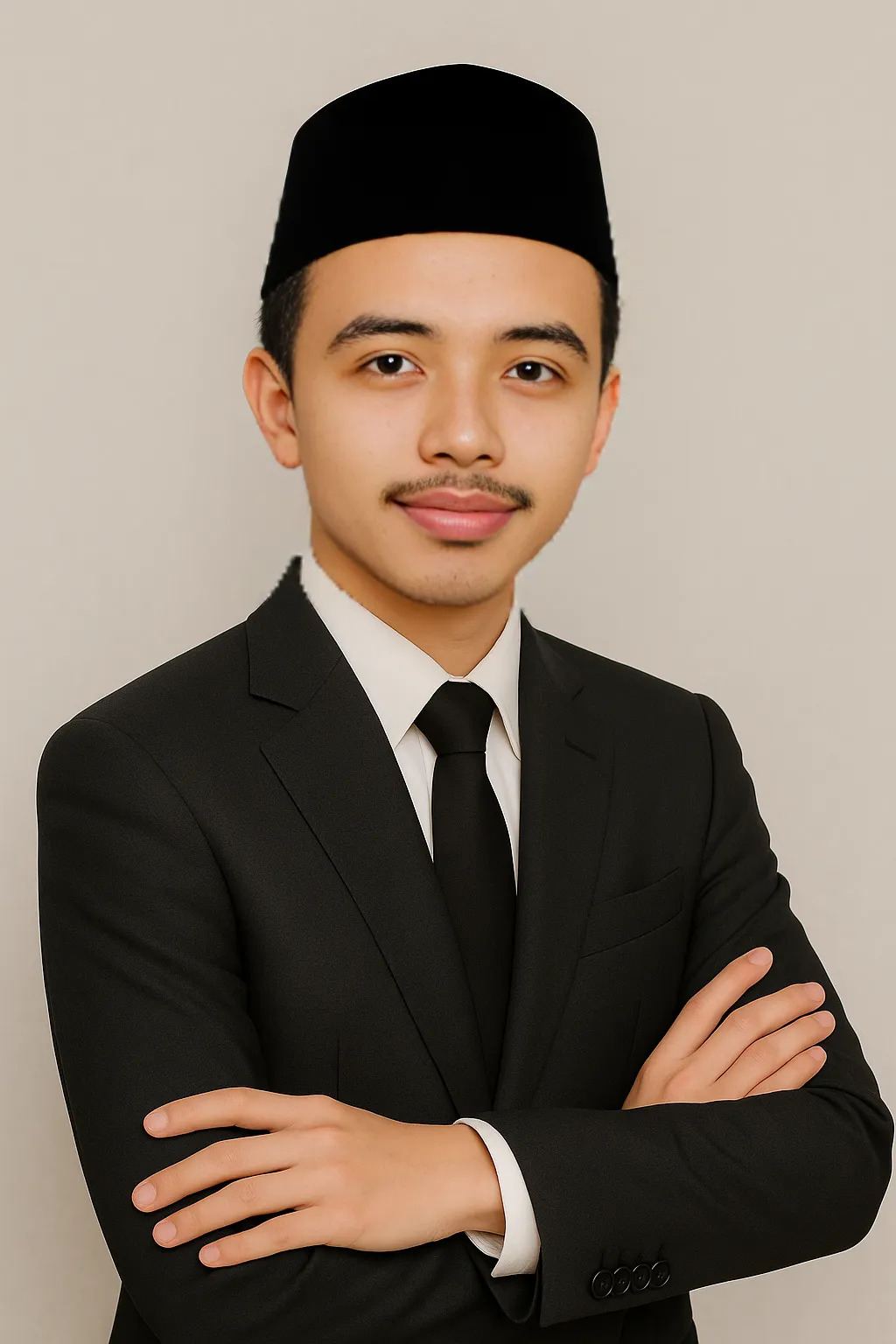The Effectiveness of the Golek Garwo Matrimonial Tradition in Forming Harmonious Families
DOI:
https://doi.org/10.24090/jimrf.v13i1.10332Keywords:
Matchmaking, Harmonious Family, Forum Ta'aruf IndonesiaAbstract
This article examines the effectiveness of the Golek Garwo matchmaking initiative organized by the Forum Ta'aruf Indonesia in facilitating the formation of harmonious families. The Golek Garwo event took place in Sewon Bantul Yogyakarta. This study adopts a descriptive-analytical approach within the field research category. The primary data is sourced from alumni who have maintained successful marriages for 5 to 7 years. The findings indicate that the Golek Garwo program, managed by the Forum Ta’aruf Indonesia, has effectively contributed to the formation of harmonious family dynamics through arranged marriages. Predominantly, religiosity emerged as the principal determinant of marital harmony. Besides religiosity, several other supporting factors, including partner adjustment, effective communication, mutual openness, mutual understanding, and collaborative problem-solving, also strengthen marital cohesionDownloads
References
Ahmad, R. W. (2011). Kontak Jodoh di Lembaga Resmi Negara (Studi Kasus di Kantor Urusan Agama Sewon Bantul). UIN Sunan Kalijaga Yogyakarta.
Amir, S. (2014). Hukum Perkawinan Islam di Indonesia (Cet V). Kencana.
Budi, H. N. S. (2009). Proses Perjodohan Kalangan Aktivis Halaqah Tarbiyah Di Kecamatan Piyungan Kabupaten Bantul Propinsi DIY. UIN Sunan Kalijaga Yogyakarta.
Departemen Agama RI. (2001). Petunjuk Pelaksanaan Pembinaan Keluarga Sakīnah. Departemen Kantor Wilayah Provinsi Jawa Barat Bidang Urusan Agama Islam.
Fillah, S. A., & Sholihuddin, H. (2005). Barakallahu Laka: Bahagianya Merayakan Cinta. Pro U-Media.
Ghazaly, A. R. (2003). Fiqih Munakahat: Seri Buku Daras. Prenada Media.
Hakim, R. M. (2014). Tinjauan Hukum Islam Terhadap Ta’āruf Antara Calon Mempelai Pria dan Calon Mempelai wanita Menurut Ustaz Felix Siauw. Universitas Islam Negeri Sunan Kalijaga.
Hamdi, I. (2017). Ta’āruf dan Khitbah Sebelum Perkawinan. JURIS (Jurnal Ilmiah Syariah), 16(1), 43–52.
Muhajir, M. (2022). Communication-Based on Local Wisdom as a Fortress of Family Resilience in the Era of Globalization: Experiences from Javanese Speech Culture. Islamic Communication Journal, 7(1), 113–128.
Nasution, K. (2013). Hukum Perkawinan I: Dilengkapi Perbandingan UU Negara Muslim Kontemporer. ACAdeMIA + TAZZAFA.
Nuryanto, R. B. (2019). Wawancara.
Soelaeman, M. I. (1994). Pendidikan dalam Keluarga. CV Alfabeta.
Tihami, H. M. A., & Sahrani, S. (2010). Fikih Munakahat: Kajian Fikih Nikah Lengkap. Rajawali Pers.
Zaini, S. (2014). Membina Rumah Tangga Bahagia. Kalamulia.
Downloads
Published
How to Cite
Issue
Section
License
Copyright (c) 2024 Rizky Ardiansyah Hasibuan, Muhammad Muhajir

This work is licensed under a Creative Commons Attribution-NonCommercial-ShareAlike 4.0 International License.
Authors who publish with this journal agree to the following terms:
- Authors retain copyright and grant the journal right of first publication with the work simultaneously licensed under a Creative Commons Attribution-NonCommercial-ShareAlike 4.0 International License that allows others to share the work with an acknowledgement of the work's authorship and initial publication in this journal.
- Authors are able to enter into separate, additional contractual arrangements for the non-exclusive distribution of the journal's published version of the work (e.g., post it to an institutional repository or publish it in a book), with an acknowledgement of its initial publication in this journal.
- Authors are permitted and encouraged to post their work online (e.g., in institutional repositories or on their website) prior to and during the submission process, as it can lead to productive exchanges, as well as earlier and greater citation of published work (See The Effect of Open Access).
















